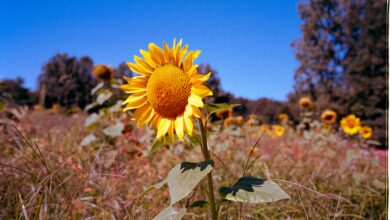All Jewish Holidays 2024: A Year of Celebration and Reflection

In the vibrant tapestry of Jewish traditions, the year 2024 unfolds as a mosaic of festivals, each with its unique significance and cherished customs. From the joyous melodies of Rosh Hashanah, marking the beginning of a new year, to the luminous lights of Hanukkah illuminating the winter nights, this year promises a rich array of celebrations and moments of introspection. Join us on a journey through the Jewish calendar as we explore the mosaic of holidays, providing a glimpse into the traditions, rituals, and stories that make each occasion special. In the spirit of unity and understanding, let’s delve into the heart of these festivities and discover the cultural richness embedded in the upcoming Jewish holidays of 2024.
Jewish Holidays 2024 List
Get ready for a year brimming with joy, reflection, and cultural richness as we explore the Jewish holidays of 2024.
1. Rosh Hashanah (September 27-29, 2024): The Jewish New Year kicks off the festivities with prayer, self-reflection, and the resonant sounds of the shofar.
2. Yom Kippur (October 5-6, 2024): The holiest day in the Jewish calendar, Yom Kippur, is a time for fasting, repentance, and seeking forgiveness.
3. Sukkot (October 10-16, 2024): A week-long festival commemorating the Israelites’ desert wanderings and celebrating the autumn harvest.
4. Shemini Atzeret (October 17, 2024): Following Sukkot, this day marks the conclusion of the festival, featuring prayers for rain in Israel.
5. Simchat Torah (October 18, 2024): Celebrate the conclusion and restart of the annual Torah reading cycle with joyous festivities.
6. Hanukkah (December 25, 2024 January 1, 2025): The Festival of Lights brightens the winter with the commemoration of the rededication of the Second Temple.
7. Tu B’Shvat (February 12, 2024): The New Year for Trees is mark by planting trees and enjoying fruits associate with the land of Israel.
8. Purim (March 23-24, 2024): A joyous festival commemorating the salvation of the Jewish people from Haman’s plot in the Book of Esther.
9. Passover (April 22-29, 2024): An eight-day festival commemorating the Exodus from Egypt, observed with the Seder meal and unleavened bread.
10. Shavuot (June 11-12, 2024): Celebrate the giving of the Torah at Mount Sinai with study, dairy meals, and the symbolic reading of the Ten Commandments.
11. Tisha B’Av (August 12, 2024): A day of mourning to remember the destruction of the First and Second Temples in Jerusalem.
12. Lag BaOmer (May 19, 2024): Marking the anniversary of Rabbi Shimon bar Yochai’s death with bonfires, outings, and celebrations.
13. Yom HaShoah (April 15, 2024): Holocaust Remembrance Day, honoring the memory of the six million Jews who perished.
14. Yom HaZikaron (April 29, 2024): Israel’s Memorial Day for fallen soldiers and victims of terrorism.
15. Yom HaAtzmaut (April 30, 2024): Israeli Independence Day, celebrating the establishment of the State of Israel in 1948.
Celebrations and Observances:
During these holidays, many Jewish students and individuals will be on leave from school and work. Families gather for festive meals, prayers, and special traditions unique to each holiday. Synagogues host communal services, and cultural events may include storytelling, music, and dance. It’s a time for reflection, gratitude, and the coming together of communities to celebrate the rich tapestry of Jewish heritage.
Title: Celebrating Diversity: Key National and Cultural Holidays in 2024
Key Points Detail:
Independence Day (July 4, 2024): A hallmark of American patriotism, Independence Day is celebrate with grand fireworks, parades, and gatherings that reflect the nation’s pride and history. Families and friends come together for barbecues and outdoor activities, honoring the United States’ Declaration of Independence.
Martin Luther King Jr. Day (January 15, 2024): This day honors the life and legacy of Dr. Martin Luther King Jr., a pivotal figure in the American civil rights movement. It’s a time for reflection on the progress made in the fight for equality and justice, and for community service initiatives that echo Dr. King’s message of peace and unity.
Thanksgiving (November 28, 2024): An emblem of gratitude and familial bonds, Thanksgiving Day is marked by sumptuous meals, typically featuring turkey, shared among loved ones. It’s a day steeped in historical and cultural significance, offering a moment to reflect on the blessings and harvest of the past year.
Labor Day (September 2, 2024): Celebrated as a tribute to the contributions and achievements of American workers, Labor Day signifies the importance of labor rights and the achievements of the labor movement. It’s commonly observed with community events, parades, and a day of rest, marking the unofficial end of summer.
These holidays, each with their unique cultural and historical significance, contribute to the rich mosaic of American life, offering opportunities for celebration, reflection, and community engagement.
Conclusion
The year 2024 is set to be a tapestry of diverse celebrations, reflecting the rich cultural and historical heritage of not just the Jewish community but the broader American society as well. From the solemn reflections of Yom Kippur to the patriotic fervor of Independence Day, each holiday offers a unique opportunity to pause, reflect, and celebrate the values and traditions that bind us together. Whether it’s through the lighting of Hanukkah candles, the fasting of Yom Kippur, or the fireworks of July 4th, these occasions provide a moment to acknowledge our shared histories and individual stories. As we navigate through these varied celebrations, let us embrace the spirit of unity, reflection, and gratitude that each holiday brings, enriching our lives and communities in profound ways.
FAQs for Jewish Holidays 2024
Q1: Do all Jewish holidays begin at the same time?
A1: Jewish holidays begin at sundown on the evening before the calendar date of the holiday and end at nightfall of the ending date. This is in accordance with the Jewish calendar, which is lunar and marks days from sunset to sunset.
Q2: Why are some Jewish holidays celebrated for an extra day outside of Israel?
A2: The additional day for certain holidays, known as Yom Tov Sheni, originates from the time when the Jewish calendar was determined by lunar observations. To ensure that communities outside of ancient Israel celebrated on the correct day, an extra day was added. Today, this tradition continues outside of Israel for holidays like Passover, Shavuot, and Sukkot.
Q3: Can I use electronic devices on Jewish holidays?
A3: The use of electronic devices is generally prohibited on major Jewish holidays such as Rosh Hashanah, Yom Kippur, the first and last days of Passover, Shavuot, and both days of Shemini Atzeret/Simchat Torah, following the same restrictions as the Sabbath. However, practices may vary among different communities and individuals.
Q4: How is the date for Easter related to Passover?
A4: Easter’s timing is indirectly related to Passover. Easter is celebrate on the first Sunday after the first full moon following the vernal equinox, which can fall around the time of Passover. Historically, Passover and Easter have been linked since Easter is believed to have occurred after Jesus’ last Passover meal with his disciples.





One Comment